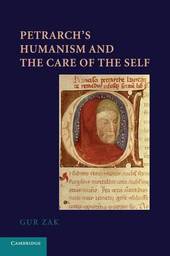
|
Petrarch's Humanism and the Care of the Self
Paperback / softback
Main Details
Description
Petrarch was one of the founding fathers of Renaissance humanism, yet the nature and significance of his ideas are still widely debated. In this book, Gur Zak examines two central issues in Petrarch's works - his humanist philosophy and his concept of the self. Zak argues that both are defined by Petrarch's idea of care for the self. Overcome by a strong sense of fragmentation, Petrarch turned to the ancient idea that philosophy can bring harmony and wholeness to the soul through the use of spiritual exercises in the form of writing. Examining his vernacular poetry and his Latin works from both literary and historical perspectives, Zak explores Petrarch's attempts to use writing as a spiritual exercise, how his spiritual techniques absorbed and transformed ancient and medieval traditions of writing, and the tensions that arose from his efforts to care for the self through writing.
Author Biography
Gur Zak is Lecturer in Comparative Literature at The Hebrew University of Jerusalem.
Reviews"In his brilliant first book, Gur Zak contrasts Petrarch's vernacular and Latin works as vehicles for attaining selfhood. In the Canzonieri Petrarch's attempts to achieve spiritual integrity by capturing his desired Laura/fame are repeatedly undercut by disappointment and compel him to further writing. In his Latin works Petrarch pursues unity of self by trying to eliminate desire altogether." -Ron Witt, Duke University "This fascinating book offers a new perspective on the second crown of Italian literature, and an original way to understand the modernity of the poet of the self" - Renaissance Quarterly "This book is an important addition to Petrarch and Renaissance humanism studies in that it presents a fresh, original, informed perspective on an issue that intrigued many past generations of scholars. Of no less importance, the book is written in a clear and transparent manner free of the trappings of professional jargon, making it accessible to a very wide audience". -Paul Colilli, Laurentian University, Speculum "In sum, this fascinating book offers a new perspective on the second crown of Italian literature, and an original way to understand the modernity of the poet of the self." -KRISTEN INA GRIMES,Saint Joseph's University "Zak's slim volume constitutes an important contribution to the study of Petrarch and early humanisitic thought..." -Scott Surrency, Canadian Journal of History
|